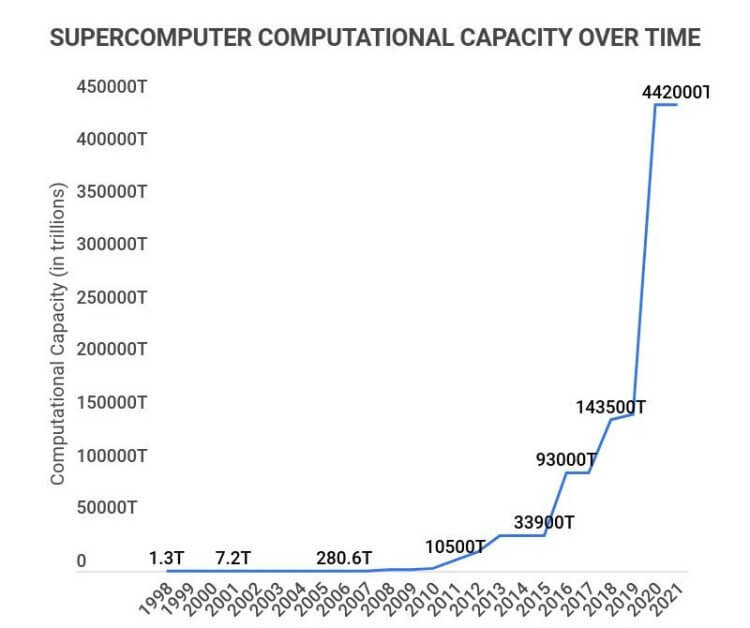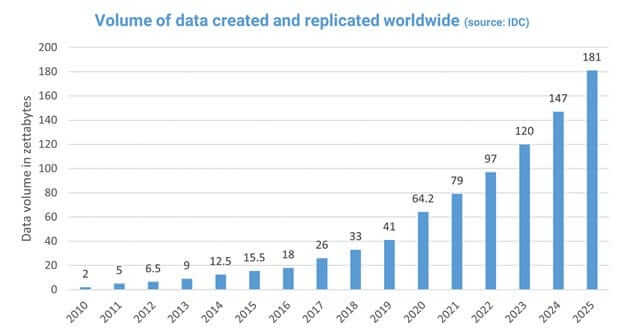
The Law of Accelerating Returns in Future of Technology 🌐🔮
29 August, 2023
The law of accelerating returns is a theory that states that the rate of technological progress is accelerating over time. This is because each new technology creates new possibilities for even more advanced technologies. For example, the development of the internet led to the development of social media, which in turn led to the development of artificial intelligence.
🤖 How Does It Lead to AGI? 🧠
The law of accelerating returns suggests that artificial general intelligence (AGI) is likely to be achieved sooner rather than later. AGI is a hypothetical type of artificial intelligence that would have the ability to understand and reason like a human being.

There are a number of reasons why the law of accelerating returns suggests that AGI is likely to be achieved soon. First, the rate of technological progress is accelerating. This means that we are getting closer to AGI all the time.
Second, the cost of developing artificial intelligence is decreasing. This means that it is becoming more feasible for researchers to develop AGI.
Third, there is a growing amount of data available to train artificial intelligence models. This data can be used to teach AI models how to perform tasks that are traditionally done by humans.
🌟 The Future of AGI 🌏
The development of AGI could have a profound impact on the world. AGI could be used to solve some of the world's biggest problems, such as climate change and poverty. However, it is also possible that AGI could be used for malicious purposes.
It is important to be aware of the potential risks and benefits of AGI. However, the law of accelerating returns suggests that AGI is likely to be achieved sooner rather than later. This means that it is important to start thinking about the future of AGI now. Potential benefits include:
- 🌍 AGI could be used to solve some of the world's biggest problems, such as climate change and poverty.
- 🔬 AGI could be used to create new technologies that improve our lives.
- 🔍 AGI could help us to better understand the universe.
📈 Intuitive Linear View versus the Exponential View on the Progress 📊
The history of technology shows that technological change is exponential, not linear.
This means that the rate of progress is accelerating over time. For example, the first computer was built in 1946 and weighed 30 tons. Today, we have smartphones that are more powerful than those computers and fit in our pockets.
This exponential growth is due to a number of factors, including the increasing complexity of technology, the decreasing cost of computing power, and the availability of data.
As technology becomes more complex, it becomes possible to create even more powerful technologies.
The increasing availability of data is also a key driver of exponential technological growth.
Data can be used to train artificial intelligence models, which can then be used to develop new technologies. For example, AI models have been used to develop self-driving cars, facial recognition software, and medical diagnosis tools.

The implications of exponential technological growth are profound.
It means that we are likely to experience a great deal of change in a short period of time. This could lead to new opportunities and challenges, and it is important to be prepared for the changes that are coming.
One of the most significant implications of exponential technological growth is the rise of artificial general intelligence (AGI).
AGI is a hypothetical type of artificial intelligence that would have the ability to understand and reason like a human being. If AGI is achieved, it could have a profound impact on society.
Another implication of exponential technological growth is the possibility of the Singularity.
The Singularity is a hypothetical event in which technological progress becomes so rapid and profound that it represents a rupture in the fabric of human history. The Singularity could lead to the development of superhuman artificial intelligence, the merging of humans and machines, or even the end of humanity.
The exponential growth of technology is a major force that will shape the world in the years to come.
The future of technology is uncertain, but it is clear that exponential technological growth is a major force that will shape the world in the years to come. It is important to be aware of this trend and to think about the implications of it.